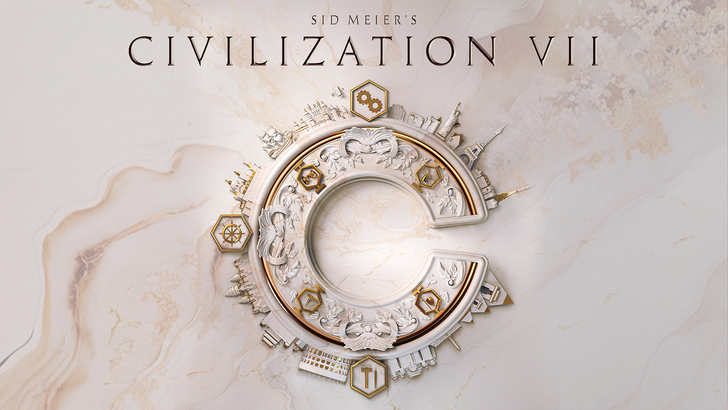Ubisoft's latest journey through time with Assassin's Creed Shadows transports players to Japan's Sengoku Period in 1579, immersing them in a world filled with historical figures like Fujibayashi Nagato, Akechi Mitsuhide, and Yasuke, the African samurai who served Oda Nobunaga. The game masterfully blends historical elements with fictional narratives, crafting a gripping tale of revenge, betrayal, and murder. While it's entertaining to imagine Yasuke's fictional quest for XP to wield a gold-tier weapon, it's crucial to remember that Assassin's Creed is rooted in historical fiction. The series excels at weaving real history with imaginative storytelling to explore themes of a secret society aiming to dominate the world using ancient, mystical powers. Ubisoft meticulously researches to create authentic-feeling worlds, yet the developers often take creative liberties to enhance the narrative, resulting in a mix of fact and fiction.
Assassin's Creed's approach to history is not about delivering factual lessons but rather using historical settings as a canvas for thrilling stories. Here are ten notable instances where the series has creatively altered historical events:
The Assassins vs Templars War

The central conflict in Assassin's Creed between the Assassins and the Templars is a complete fabrication. Historically, there's no evidence of a war between the Order of Assassins, founded in 1090 AD, and the Knights Templar, established in 1118 AD. Both groups were disbanded by 1312, and their only common involvement was in the Crusades. The game's narrative of centuries-long conflict is purely fictional, inspired by conspiracy theories about the Templars.
The Borgias and their Superpowered Pope

In Assassin's Creed 2 and Brotherhood, Ezio's battles against the Borgia family, particularly with Cardinal Rodrigo Borgia, who becomes Pope Alexander VI, are steeped in fiction. The game's plot involving the Borgias' pursuit of the Apple of Eden to control humanity with god-like powers is entirely made up, as the Templars did not exist during the late 1400s. While the Borgias' depiction as villains suits the game's narrative, historical records suggest they were not as villainous as portrayed, with Cesare Borgia's portrayal as an incestuous psychopath based on rumor rather than fact.
Machiavelli, Enemy of the Borgias

Assassin's Creed 2 and Brotherhood portray Niccolò Machiavelli as Ezio's ally and leader of the Italian Assassin's Bureau, fighting against the Borgias. However, Machiavelli's real-life philosophies favored strong authority, contradicting the Assassin's Creed. He had a more nuanced view of the Borgias, serving as a diplomat in Cesare Borgia's court and viewing him as a successful ruler, which clashes with the game's portrayal of their relationship.
The Incredible Leonardo da Vinci and his Flying Machine

Assassin's Creed 2's portrayal of Leonardo da Vinci's relationship with Ezio is compelling, capturing his wit and charisma. However, the game alters his timeline, moving him from Florence to Venice in 1481 to align with Ezio's story, while he actually moved to Milan in 1482. The game also brings to life many of da Vinci's designs, including a flying machine, despite no historical evidence that these were ever built or flown.
The Bloody Boston Tea Party

The Boston Tea Party, a pivotal event in the American Revolution, was historically a non-violent protest. Assassin's Creed 3 dramatically changes this, depicting protagonist Connor and other protesters engaging in a violent confrontation with British guards, resulting in numerous casualties. The game also attributes the planning of the protest to Samuel Adams, despite historical ambiguity about his involvement.
The Lone Mohawk

Assassin's Creed 3's Connor, a Mohawk, fights alongside the Patriots against the British, a significant deviation from history. The Mohawk people were allied with the British during the Revolutionary War. While rare instances like Louis Cook, a Mohawk who fought with the Continental Army, existed, Connor's allegiance to the Patriots is a "what if" scenario that fuels the game's narrative tension.
The Templar Revolution

Assassin's Creed Unity's portrayal of the French Revolution suggests it was a Templar conspiracy, a stark departure from historical causes like famine due to natural disasters. The game oversimplifies the revolution, focusing on the Reign of Terror rather than its broader context, implying that the Templars could orchestrate such a complex event.
The Controversial Killing of King Louis 16

Assassin's Creed Unity's depiction of King Louis 16's execution suggests a close vote swayed by a Templar, contradicting the historical majority vote for his execution. The game also downplays the widespread anger towards the French aristocracy, barely mentioning the King's attempt to flee to Austria, which contributed to his treason charges.
Jack the Assassin

Assassin's Creed Syndicate reimagines Jack the Ripper as a rogue Assassin seeking control over the London Brotherhood. This narrative twist turns historical serial killings into a power struggle within the Assassin's ranks, leveraging the mystery surrounding Jack's real identity and motives.
The Assassination of the Tyrant Julius Caesar

Assassin's Creed Origins' portrayal of Julius Caesar's assassination frames him as a proto-Templar, diverging from historical accounts that highlight his efforts to redistribute land and support the poor. The game's narrative suggests his death prevented global tyranny, ignoring the historical aftermath that led to the Roman Empire's rise.
The Assassin's Creed series, while deeply researched, prioritizes storytelling over historical accuracy, offering a unique blend of history and fiction. This approach allows for engaging narratives that explore "what if" scenarios, inviting players to question and explore history through a different lens. What are your favorite examples of Assassin's Creed's creative liberties with history? Share them in the comments below.








